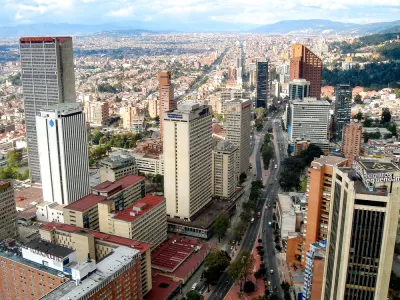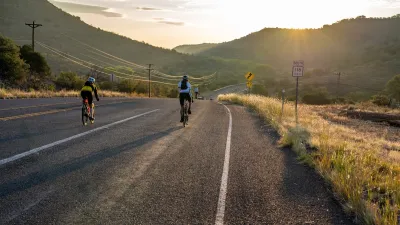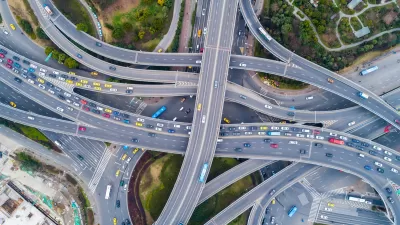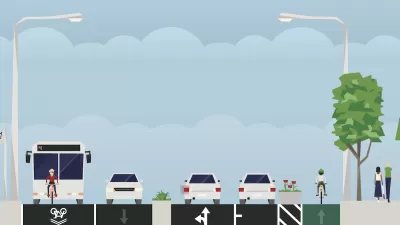To reimagine the city's most important artery, Bogotá sought community input via an innovative online platform.

Bogotá's Avenida Séptima, a six-lane thoroughfare that traverses the city's eastern side, has seen its share of modernization attempts over the last two decades, each creating more disagreement between conflicting interests and spurring demand for increased community involvement. When announcing the latest plan for transforming the traffic-choked street into a green corridor that prioritizes public and active transportation, Bogotá's new mayor, Claudia Lopez, promised a process that would be thoroughly participatory.
Using a custom version of the open-source online platform Streetmix, the city solicited design proposals from the public. Accessible to anyone with an internet connection, Streetmix lets participants build their ideal street design with a set of simple graphic tools. Over the two weeks that the Séptima Verde initiative opened to the public, the city received 7,000 design submissions from 6,000 residents. Analyzing this data provides Bogotá's leaders with invaluable information about what community members want to see on their streets and how to more effectively use street space to improve livability and reduce congestion.
Accessible to anyone with an internet connection, Streetmix lets participants build their own ideal street design with a set of simple graphic tools, giving everyday citizens—the people with deep first-hand knowledge of their community—the chance to make concrete suggestions for improvements on a hyper-local scale. Even(or especially) if those suggestions include magic carpets.
FULL STORY: How Bogotá Is Turning 7,000 Citizen Proposals into a Real Plan to Redesign a Major Thoroughfare

Maui's Vacation Rental Debate Turns Ugly
Verbal attacks, misinformation campaigns and fistfights plague a high-stakes debate to convert thousands of vacation rentals into long-term housing.

Planetizen Federal Action Tracker
A weekly monitor of how Trump’s orders and actions are impacting planners and planning in America.

In Urban Planning, AI Prompting Could be the New Design Thinking
Creativity has long been key to great urban design. What if we see AI as our new creative partner?

King County Supportive Housing Program Offers Hope for Unhoused Residents
The county is taking a ‘Housing First’ approach that prioritizes getting people into housing, then offering wraparound supportive services.

Researchers Use AI to Get Clearer Picture of US Housing
Analysts are using artificial intelligence to supercharge their research by allowing them to comb through data faster. Though these AI tools can be error prone, they save time and housing researchers are optimistic about the future.

Making Shared Micromobility More Inclusive
Cities and shared mobility system operators can do more to include people with disabilities in planning and operations, per a new report.
Urban Design for Planners 1: Software Tools
This six-course series explores essential urban design concepts using open source software and equips planners with the tools they need to participate fully in the urban design process.
Planning for Universal Design
Learn the tools for implementing Universal Design in planning regulations.
planning NEXT
Appalachian Highlands Housing Partners
Mpact (founded as Rail~Volution)
City of Camden Redevelopment Agency
City of Astoria
City of Portland
City of Laramie





























